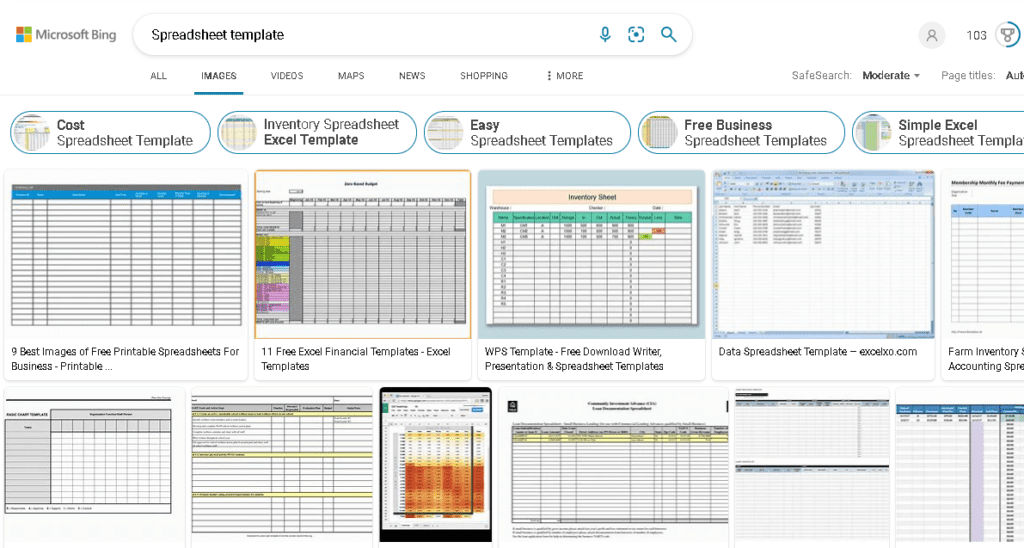Spreadsheet Solutions
A brief history of spreadsheets in the workplace
Spreadsheets have increasingly become been a crucial corporate tool since the early 1980’s. The first spreadsheet was VisiCalc, which Apple utilised on their Apple 2 PC and from there a lot of the world started their spreadsheet journeys via Lotus 1-2-3 which debuted in 1983 and was a massive trailblazer; it sadly went out of existence in 2002.
The majority of us will likely use Microsoft Excel these days, and why not? There are many great things about it. There are quite a lot other choices out there, some of which are great and totally free, for example, Google Sheets and Libre Office.
You can use a version of Microsoft Excel for free to by logging into Office.com with your Microsoft account and choosing the Excel app. This app can only be used in your web browser and has fewer features/capabilities than the full Microsoft 365 version and can only be used while you are actively connected to the internet.
Since its introduction in 1985, Excel has developed into what is now possibly the most significant computer programme in offices all around the world. Excel has become so ingrained in company processes across the globe for uses like stock analysis, budgeting, sales lists, and task management that most office-based workers nearly always need to have some functional understanding of Excel to land a job.
Excel proficiency is likely to be able to open additional doors leading to leadership and advancement prospects. Although Excel is a strong tool, it cannot work by itself. It requires a skilled computer user to make the most of Excel’s features in order to deliver the finest outcomes for their business.
A spreadsheet is very helpful for inputting, modifying, analysing, and saving data. You can use Excel to perform mathematical operations on numerical data, such as addition, subtraction, multiplication, and division. You can use straightforward financial, mathematical, and statistical methods to sort characters in accordance with certain predetermined criteria, such as ascending or descending.

The importance of spreadsheets in business

Spreadsheets have long been used to organise, compute, analyse, store and display data in both professional and personal contexts. They have established themselves as an all-purpose instrument for managing commodities and tracking business funds, among other things.
If you love spreadsheets, the idea of giving them up is definitely making you shiver. However, there are a number of important reasons why you should generally reduce your reliance on spreadsheets, one of which is that the majority of spreadsheets will contain mistakes, you can count on that.
Of course, this isn’t always the fault of spreadsheets; it’s the problem of the people who create and manage them. Misinterpretations or a lack of training in spreadsheets may result from an erroneous formula, an inaccurately reported number, or insufficient formatting.
However, the malleability, simplicity, absence of checks and balances, and lack of communication of spreadsheets make it easier for people to make those mistakes. It’s not worth the risk because spreadsheets are regularly used for sensitive or essential data where even a single error may be costly.
Spreadsheets are infinitely versatile

There are no specific formatting standards when creating a spreadsheet but when you consider it’s a tool with almost unlimited uses, there’s no possible way of developing a standardised approach with regards to their use.
Spreadsheets will typically provide a plethora of formatting options for cells, rows, columns, and even how numbers and data are shown on the sheet. On the surface, this appears to be a terrific feature, but because there are so many options, determining what is appropriate for particular usage is tough. Although most spreadsheet products will include a few templates, there is no standard format that all of your employees, partners, and clients may utilise. When you submit data to another party, the data, layout and formatting that makes sense to you may not make sense to them, resulting in misunderstanding and compatibility issues.
The versatility of Spreadsheets is both a feature and a fault, although spreadsheets allow us to explore solutions in a variety of small areas, they were never intended to be a Tier 1 business tool. They perform admirably in a wide range of applications, but they are not the optimum choice for any given task of significant business impact. Spreadsheets are inferior in practically every application because of the range of technologically sound, purpose built software tools designed for certain tasks.
The technology with spreadsheets is evolving rapidly

The fact that a spreadsheet can only be accessed by one person at a time is a critical yet overlooked issue. Even when cloud-based spreadsheets are available, it is common for only one person to make active changes while the others work with a read-only copy and must wait until they are alerted that they are now in edit mode and can save. This makes it difficult for your team to maintain continual communication or to focus on a single finished job. In the age of distant workers and smart technologies, you need more alternatives for uncomplicated collaborative management.
Some of the most important aspects of a purpose-built software product include real-time data processing, streaming, and updates. It is not possible to provide real time via a spreadsheet. Because of the volume of information available and the surge in user needs, things like inventory tracking and customer data are moving towards real-time streaming for faster, more accurate information delivery.
Spreadsheets can only be edited by one user at a time, cannot be linked to other systems for automatic updating, and are not appropriate for real-time updates. Real-time updates are significantly more valuable.
At what point do you need something more than a spreadsheet?

There are numerous excellent reasons to stop using spreadsheets and start using purpose built software products, but this does not mean that your needs will go away. For things like basic Inventory control and financial reporting at a small family run business, a spreadsheet is quite possible the most cost effective option. There are many fantastic alternatives to spreadsheets in the way of specialised software, a lot of these can potentially be expensive but this is not always the case, I can assure you, in fact you may be pleasantly surprised at just how many free/open source options might be out there waiting for you.
There are various types of tracking and management software products available, some of which specialise in only a particular industry, such as accounting software, while others serve a variety of applications. The best course of action is to select a software package that best meets the specific needs of your company.
Spreadsheets may well become obsolete at some point, but that time is not now and definitely not in the near future. When there are enough low-cost, purpose-built alternatives for the countless small tasks that spreadsheets currently do so well, that day will draw closer. Until then, make an effort to reduce your reliance on spreadsheets by conducting some study, carefully weighing your options and give the odd purpose built software product a try.
Run a small business using Spreadsheets

Spreadsheets are widely utilised in small businesses for storing, analysing, sorting, and reporting purposes since they are highly visual, extremely cheap and typically easy to use. This does not imply, however, that your staff does not require spreadsheet training. Spreadsheets are frequently used in small firms for operations management, performance reporting, human resource management, and business analysis involves utilising obtained data for inform decision-making. Through everyday business operations, small businesses regularly gather data, such as statistics on product sales, website traffic, supply costs, insurance claims, etc. Data must be transformed into useful information that managers can use through the process of business analysis.
You might be surprised to learn that one of the most common uses of Spreadsheets in small business is people management. Spreadsheets are a powerful tool for organising data on individuals, whether they are employees, contractors, casuals, clients, supporters, or training participants. Spreadsheets can effectively save and retrieve personal data. Individual records can be saved in a spreadsheet row or column and include information such as the name, email address, hire date, purchases made, subscription status, and most recent contact details.
Spreadsheets can help you solve complicated logistics issues

Even quite small businesses might have quite complicated logistics. Inventory flows must be regulated to keep operations running smoothly and to avoid overstocking on specific commodities. This includes managing time and scheduling, creating a calendar of important occasions and keeping track of supplier and customer interactions. Spreadsheets are an essential tool for many smaller businesses who fight just to break even each month, even if some would like to spend more and use pricey specialised software for operations management. Spreadsheets offer the advantage of being relatively low-tech, allowing for wider use and removing the potential of programming errors.
A spreadsheet can be used to undertake specialised business analysis such as performance monitoring and reporting with success. Many accountants, for example, continue to use spreadsheets, in part because they interact with online accounting programs. Making a pivot table in a spreadsheet is a common approach for translating data into a performance report. By creating a pivot table and connecting it to the data, you may easily extract additional relevant information from the dataset. Many built-in functions in pivot tables allow for tasks such as counting and summing various types of dataset data.
Office Managers make good use of spreadsheets

Spreadsheets are used by office administrators to enter and preserve critical administrative data, demonstrating their importance. The same data can then be used for business analysis, financial reporting, accounting, and performance reporting in the future. Spreadsheets are used in office administration for daily tasks such as invoicing, paying bills, and contacting suppliers and clients, as well as for record keeping.
Spreadsheets are a multi-purpose tool for controlling and monitoring office operations. Strategic analysis is a spreadsheet use in which business decisions are strongly linked to the information and formulas on the spreadsheets. Spreadsheets guide actions such as asset allocation and investment decisions.
Spreadsheets are an incredibly effective Analysis Tool

The purpose of spreadsheet analysis is to provide precise business decision-making information. Despite the fact that the vast majority of industrial supervisors have access to project or maintenance management software, a spreadsheet is frequently a viable option. Projects and planned maintenance events, for example, may have a budget as well as a start and end date.
After project plans have been entered into workbooks, they can be utilised to track progress and maintain project timetables. Using a spreadsheet has the advantage of making it easier to share the project workbook with others, particularly those who are inexperienced with or lack access to specialised software tools.
Use spreadsheets for successful Event Management

There are several contract management templates available that can be tailored to a certain contract type or stage of the contract lifecycle. Account managers are often required to be skilled spreadsheet users due to the fact that they receive and must retain customer records. An account manager’s job is to keep in touch with the company’s present customers.
Repeat business and consumer loyalty are crucial goals. It’s a marketing-related occupation and quote a popular career path. Spreadsheets are widely used in account management because they provide an easy way to distribute and preserve customer files.
Spreadsheets will be around for a long time

If this article hasn’t already convinced you, spreadsheet knowledge and usage is extremely useful in small business. Spreadsheets are obviously widely utilised, but not in all small firms and that’s understandable.
Knowing how to use spreadsheets helps you to work on a number of projects without spending a vast amount of time on each one. Workbooks also make it easier for you to profit from shared information. You’ll find yourself using spreadsheets more and more as you learn how to utilise them effectively.
It’s an approachable platform that can be used for both simple and complex small business operations.
Other Pages & Blog Articles


We're Ready, Let's Talk.
Contact Info
Address
PO Box 784, Muswellbrook, NSW, Australia
Email Us
admin@cmmssuccess.com
Call Us
0448 687 451

